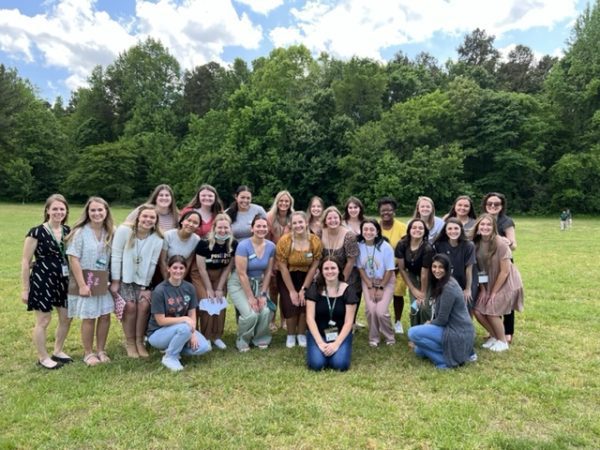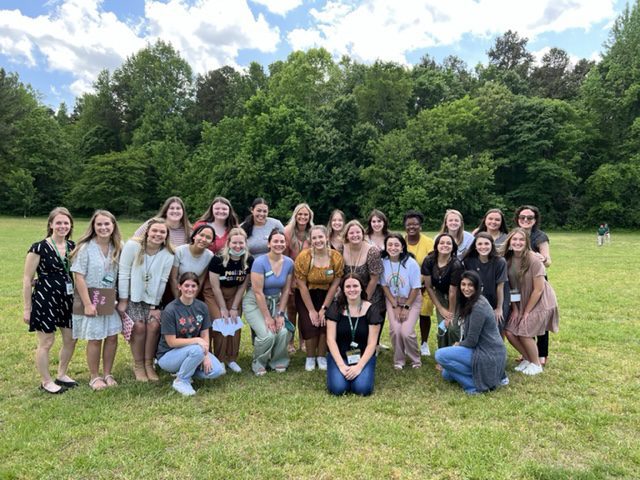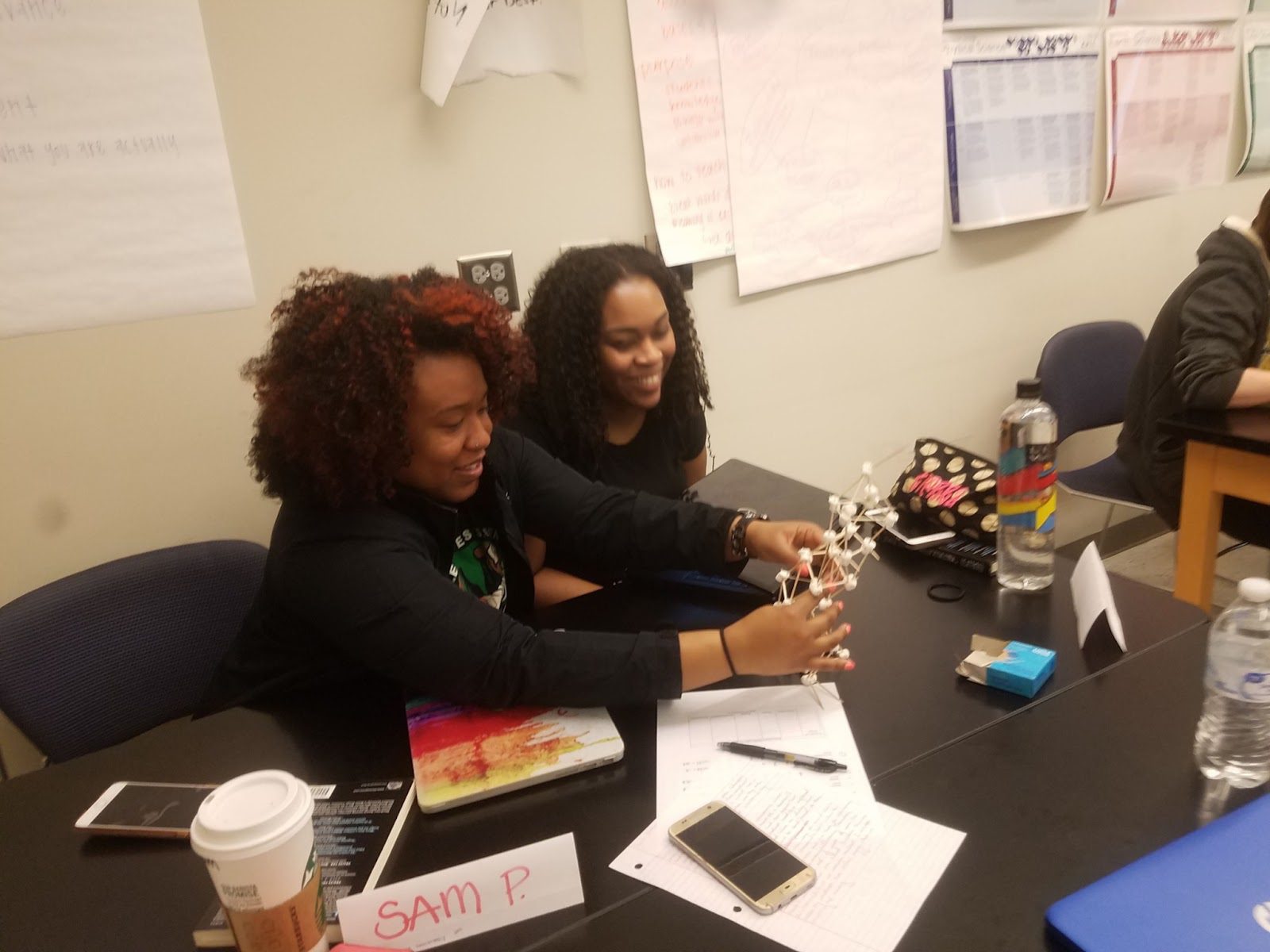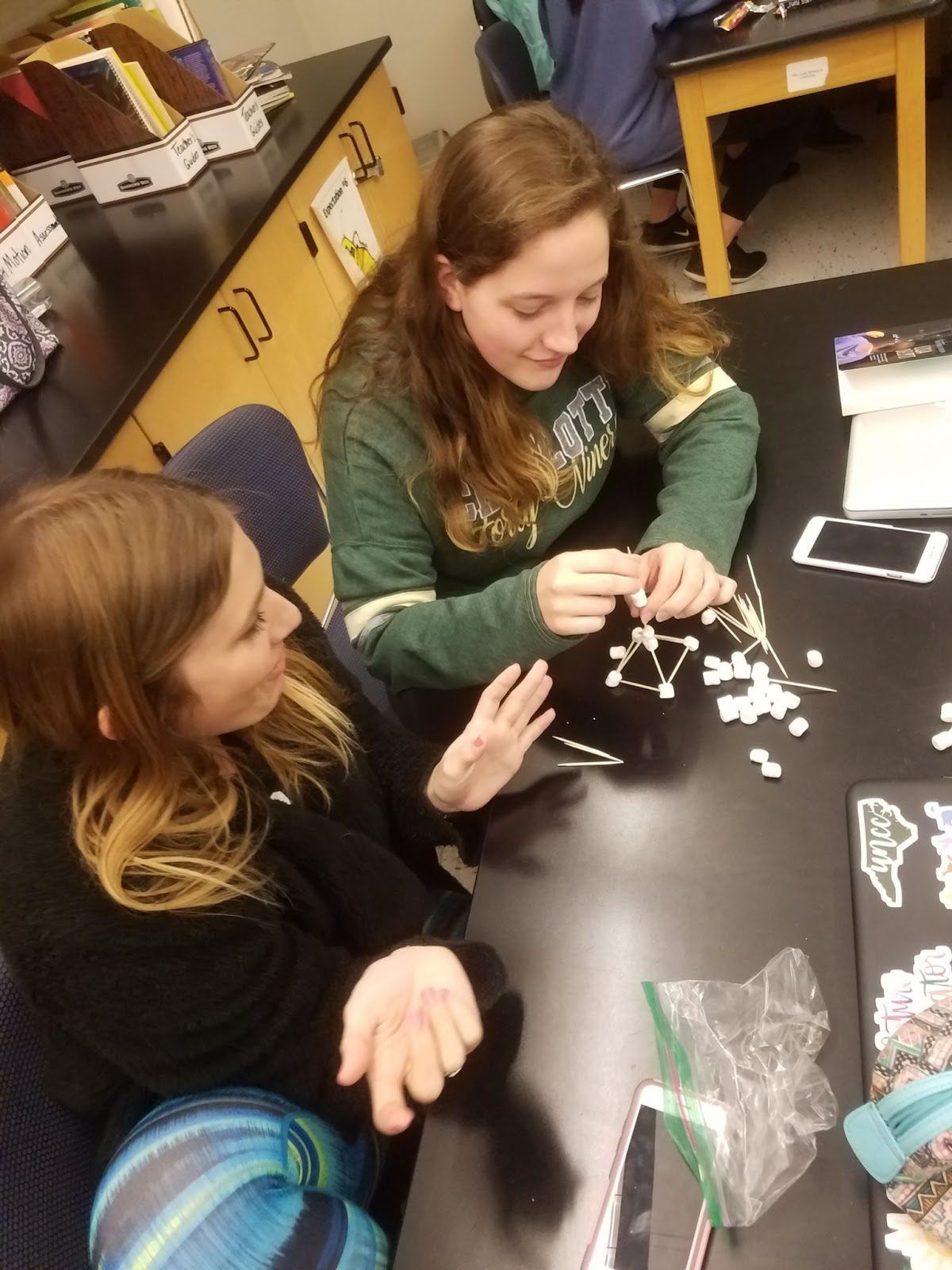UNC Charlotte’s Elementary Education Program Earns Highest Rating for Mathematics Preparation of Teachers

UNC Charlotte Program Named National “Exemplar”
The undergraduate elementary teacher preparation program at UNC Charlotte has been named among the best in the nation when it comes to ensuring future elementary teachers have the essential content knowledge and skills they need to teach mathematics.
It is one of only 79 programs in the country to earn an ‘A+’ ranking for its coursework requirements in Elementary Mathematics in the National Council on Teacher Quality (NCTQ) 2022 Teacher Prep Review, earning the distinction as “exemplar.”
The NCTQ is a national research and policy organization that evaluates the core requirements and practices of over 1,100 programs that prepare future elementary teachers. It is the only nonprofit, nonpartisan agency solely dedicated to measuring teaching quality.
They evaluated UNC Charlotte’s program for its coverage of both the key mathematics content as well as how to teach those concepts and found that it meets 100 percent of the instructional goals across each area of elementary mathematics.
UNC Charlotte is the only North Carolina school on the list. Malcolm B. Butler, Dean of the Cato College of Education, stated, “This ‘A+’ ranking is another testament to the amazing faculty in our elementary teacher preparation program. We continue to prepare teachers who impact the lives of elementary school students and their families. The fundamental knowledge and skills associated with the teaching of mathematics are deeply embedded in our program. What we do works, and NCTQ confirms it.”
Team of Professors Works to Redesign Program
The distinction is due to the collaborative efforts over the past three years of a team of four professors, several adjunct professors, and one doctoral student. Leading the program are Madelyn Colonnese, Chrislyn Luce, Luke Reinke, and Drew Polly.

Their work has centered around infusing practice-based teacher education into the program, a method of teaching that prioritizes practice over traditional learning.
It is part of a broader, long-term campaign by the Cato College of Education, and it is based on studies that reveal practice-based education makes teachers better equipped to succeed.
“We’ve found there is often a disconnect between what is taught in university classes and the reality our preservice teachers experience when it comes to enacting that knowledge in their classrooms, which is what really drove this change,” said Colonnese.
National standards call for more time spent teaching, including intentional and intensive clinicals that are meaningful and relevant, and at UNC Charlotte students are learning it in a way that’s much deeper than they have ever learned it before.
Each semester, students plan lessons, rehearse in front of peers, and take teaching positions in local schools.
“What makes our program unique is the use of practice with peers to ensure students deepen their understanding of math concepts and teaching methods,” said Luce.

The professors use a “scaffolding” model in which the rehearsals and clinicals become increasingly complex. First the instructors model a particular teaching practice and students learn about the component pieces. They reflect on it, rehearse it in class, and receive feedback. They then take that knowledge into their clinical placements.
Julia Rohlfing, a junior in the program, said the practice-based learning experiences really stretched her personally and professionally.
“I had never done anything like that,” she said. “The hands-on learning, the wide diversity of timely and relevant topics, the simulations, the equity-based learning, and the constant reflections all ensure high-level thinking. Adapting and changing based on students’ needs is something teachers have to do on a daily basis, which is why the practice and reflection model is so effective.”
Dr. Luke Reinke said, “Our goal is to create an evolving feedback process of practice, reflection, revision, and practice that makes an especially powerful learning platform.”
Focusing on Equity
The other major factor that the NCTQ evaluated was how equity gets woven into the program’s content and methods courses.
The program asks its students to be highly conscious of the ways students from different backgrounds have historically been marginalized in classrooms, and what teachers can do to interrupt that.
Candidates practice questioning strategies so that multiple perspectives and ideas are discussed, said Luce. Candidates then discuss and get feedback on their questioning strategies with a focus on how targeted questioning helps students with different backgrounds and prior knowledge come to understand new math concepts.
Colonnese said, “We know highlighting equity is the best way to prepare our candidates to be effective math teachers and to do right by their kids. The changes that we’ve made are a reflection of what our students need.”
“Equity has become a centerpiece of our program,” added Polly. “It’s critical to prepare our teacher candidates to be effective mathematics teachers successful in all schools and communities and to ensure access to high-quality learning experiences that have been historically marginalized.”
Cultivating Community and Identity
The distinction the program received is not a checking off of boxes, but a reflection of a team of professors who are passionate about what they do.
They have been in constant communication and collaboration over the past few years, sitting in on one another’s rehearsals and having strategic planning meetings in which each professor has an equal say.
“The collaborative effort has allowed us to think carefully and holistically about how we design our courses in such a way that they’re connecting students’ classroom experience with how they teach in their clinical placements and beyond,” said Colonnese.

For Dr. Luke Reinke, the joy of the work comes from passing along excitement and expertise about math.
“They may not have a great relationship with math when they come in,” he said, “but we work to cultivate their mathematical identity so they can pass along that excitement to their students.”
Dr. Colonnese strives to build a strong math community, one where students feel comfortable about being experimental with new teaching strategies that they’ve never used before.
For Dr. Drew Polly, it’s about making an impact. “We work with anywhere between 50 to 90 teacher candidates a semester,” he said. “Knowing how much of an impact they’re going to have on their own students as teachers is powerful.”
Impacting the Future of Elementary Students
The research shows that elementary math skills are a strong predictor of whether or not a student will graduate from high school.
Recent data has revealed that students in many states have lost more learning in math than in reading over the past two years, and pre-existing gaps in high-quality opportunities to learn mathematics have worsened since 2020 between low-poverty and high-poverty schools and between majority-white and majority-Black schools, so the need for elementary teachers to be well-prepared to teach mathematics has never been more urgent.
“As professors, we try to make a bridge between what happens in our classes and what happens in elementary schools. Intensive and relevant practice-based learning, as well as strengthening students’ experience in a post-pandemic environment, will continue to be something that drives our program, and our approach helps make that bridge a little bit more transparent, clearer, and easier for the candidates to understand,” said Polly.
NCTQ President Dr. Heather Peske said, “We know how much math matters in setting a foundation for students. The biggest in-school difference we can make for students’ math learning is to make sure their elementary teachers understand key math content and know how to teach math effectively. The University of North Carolina at Charlotte should be proud to be among the top teacher preparation programs in the country working towards this goal.”
See the full NCTQ report to learn more about how the UNC Charlotte earned this top score, all scores for elementary teacher preparation programs in North Carolina, and the full national findings: www.nctq.org/review/Elementary-Mathematics-2022.